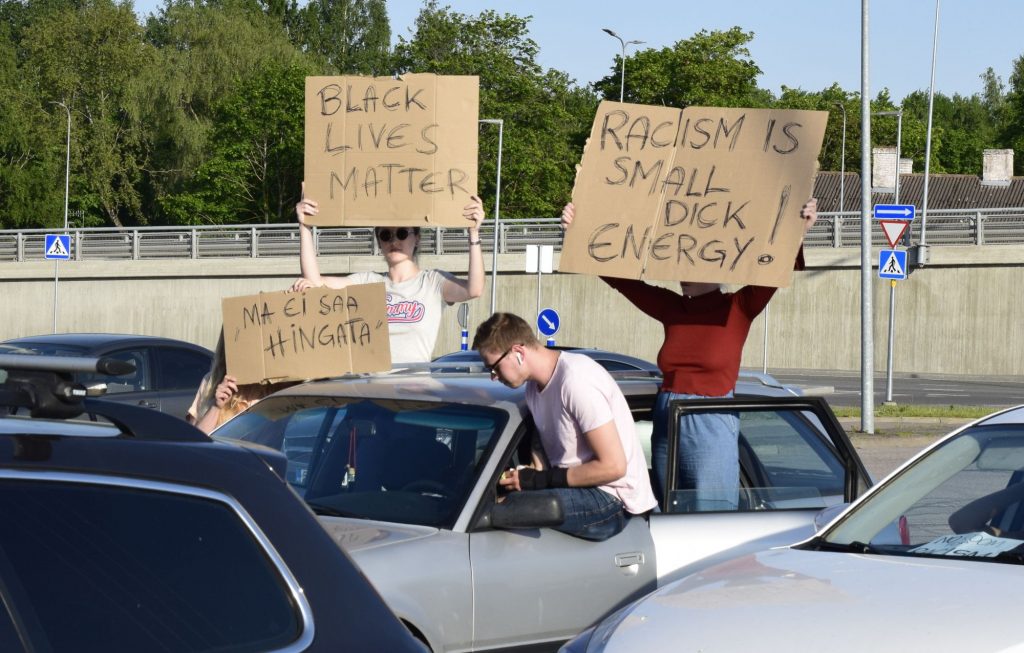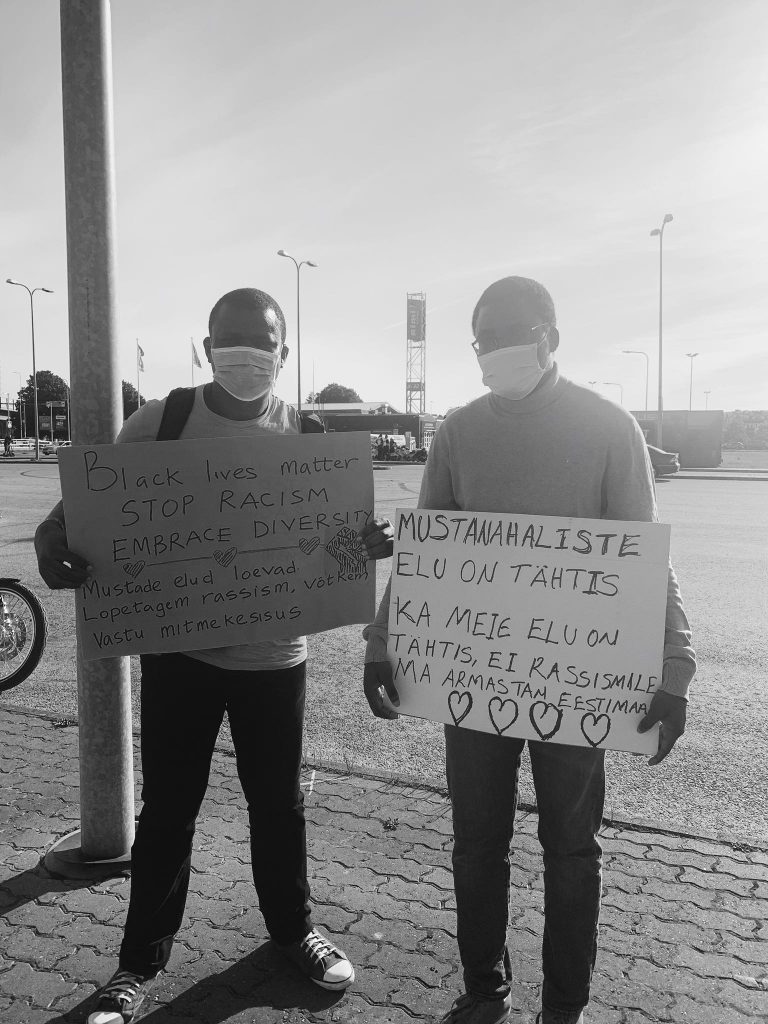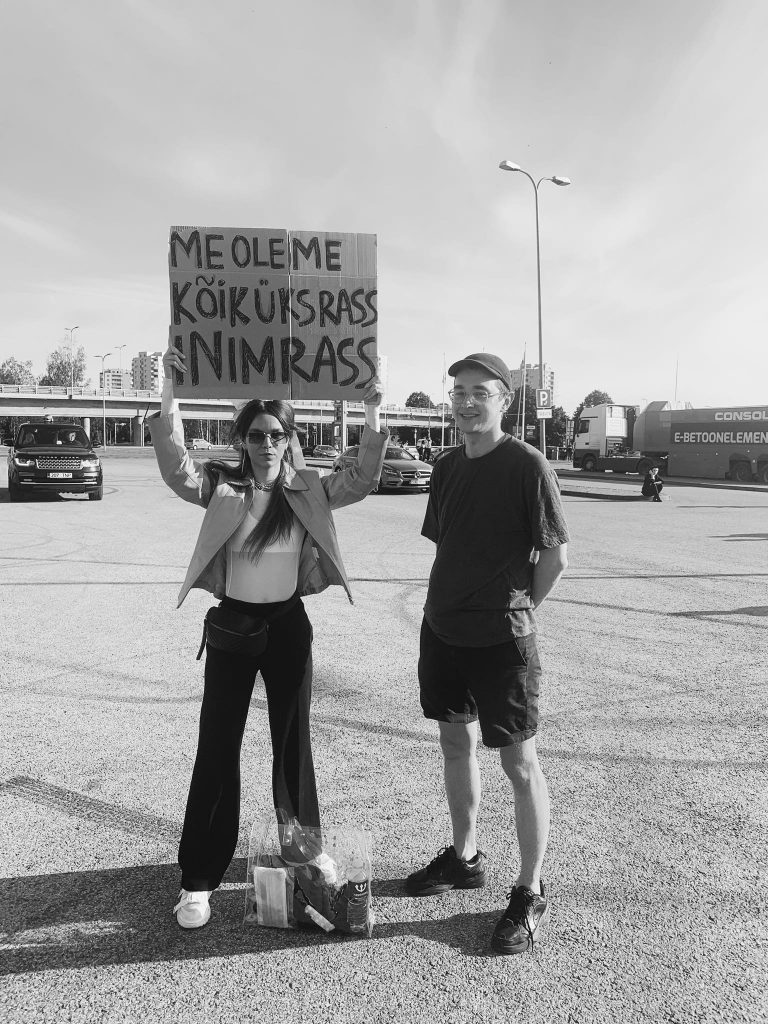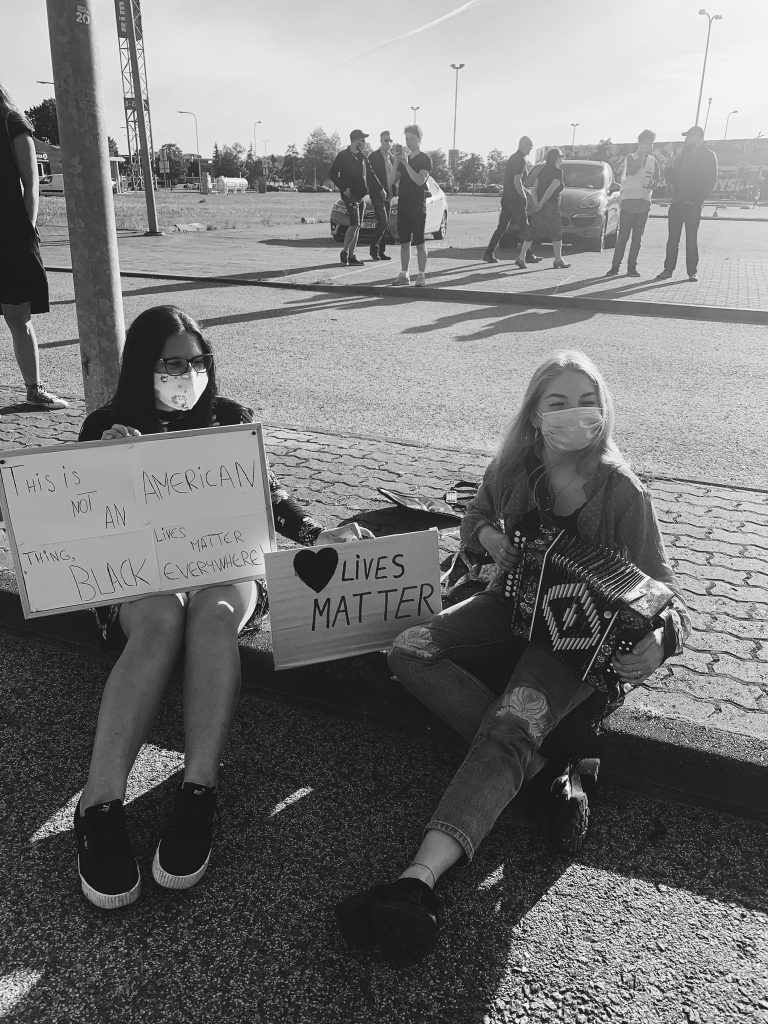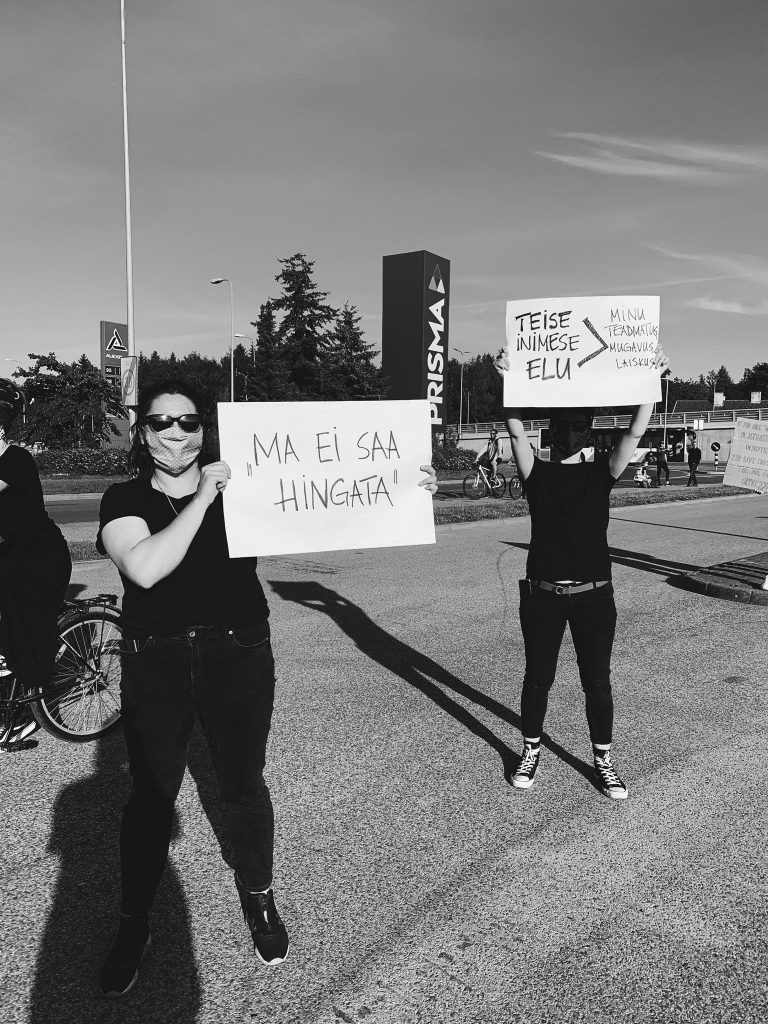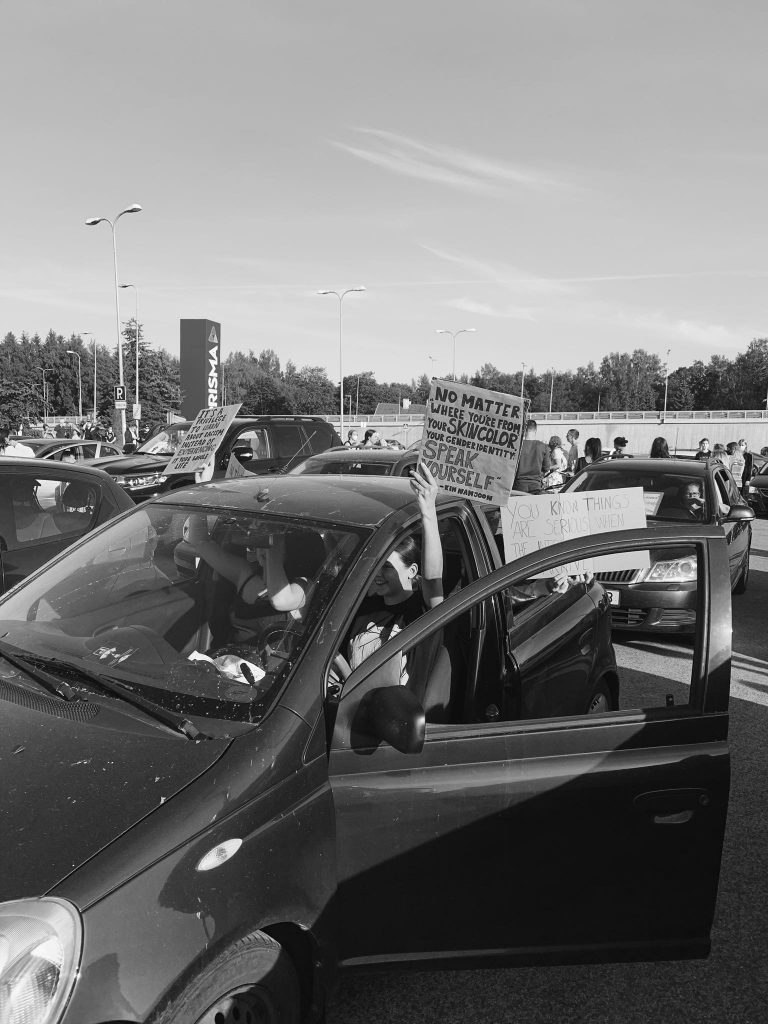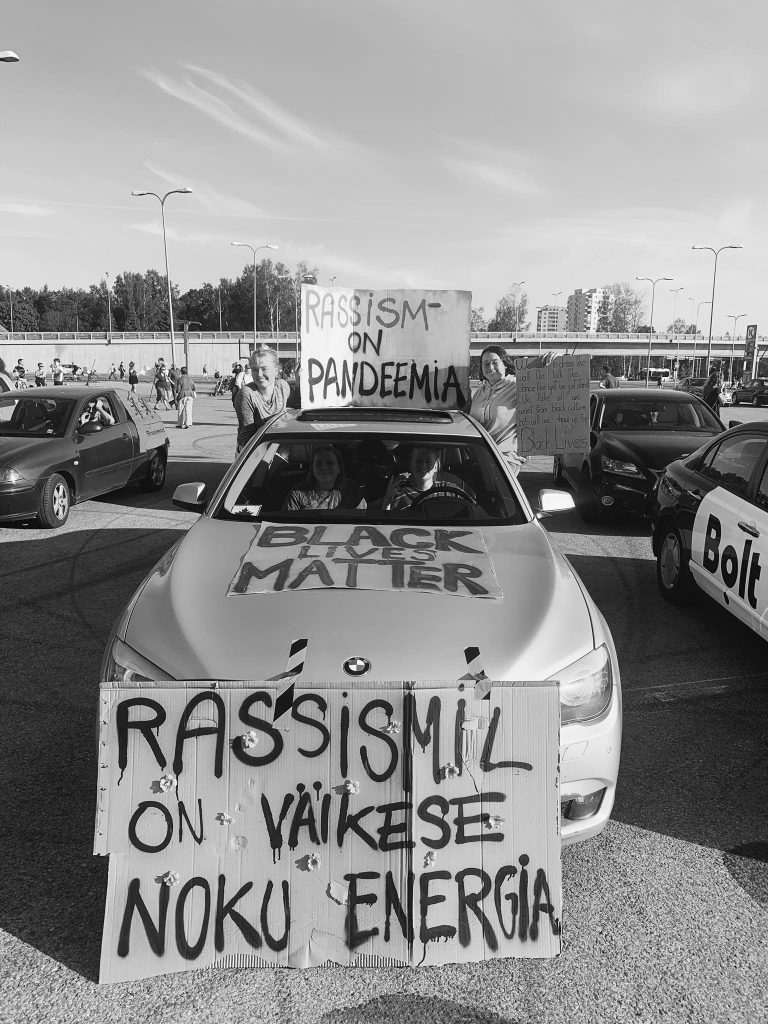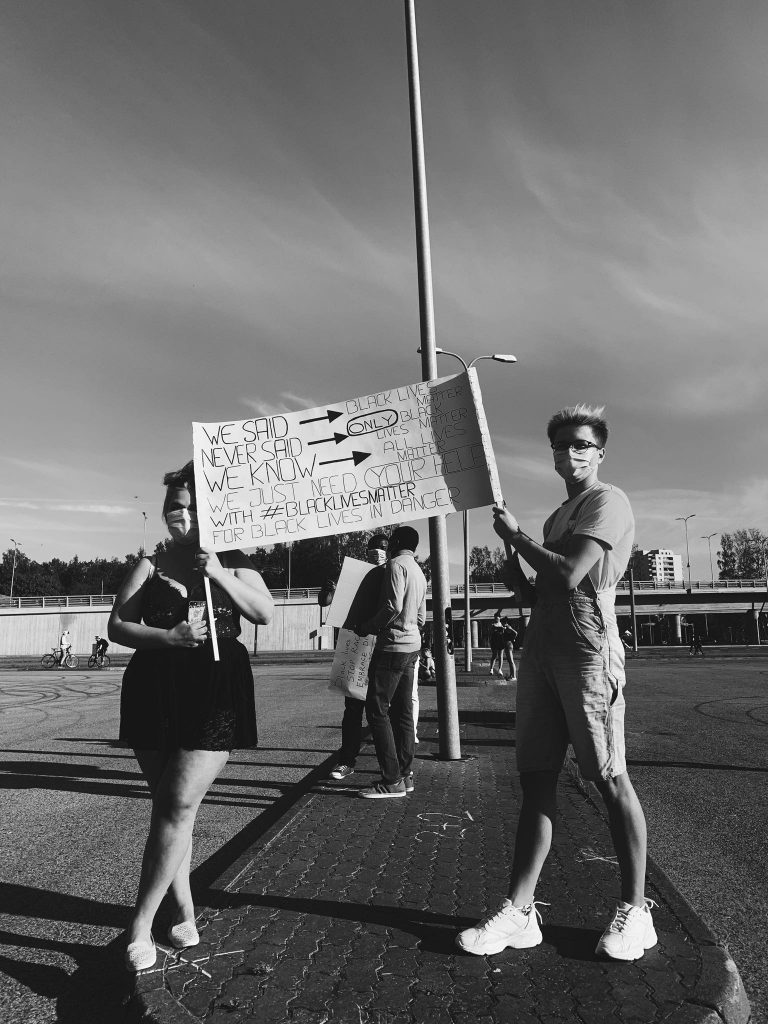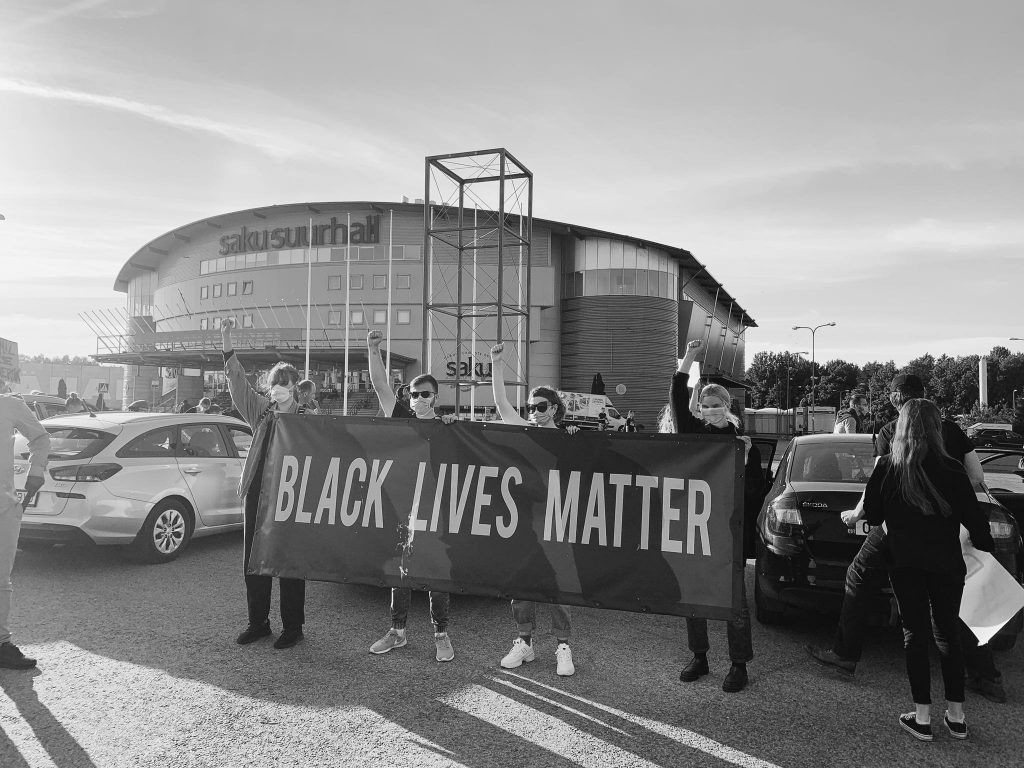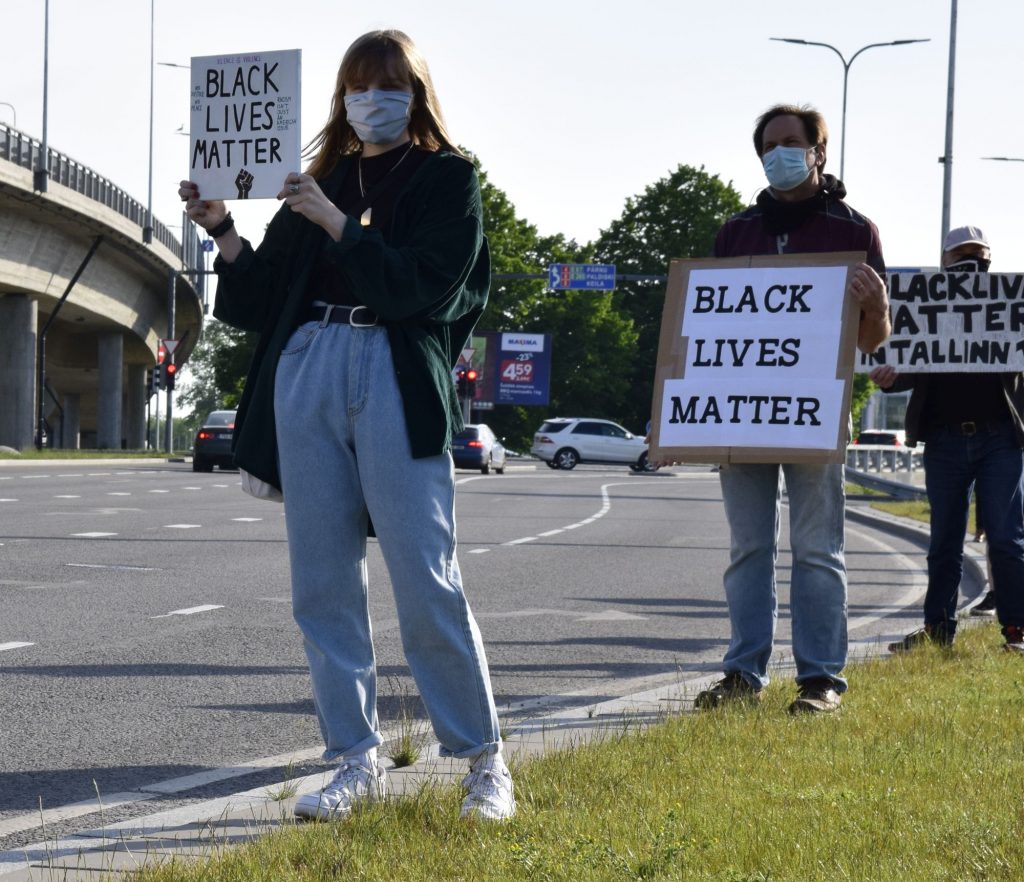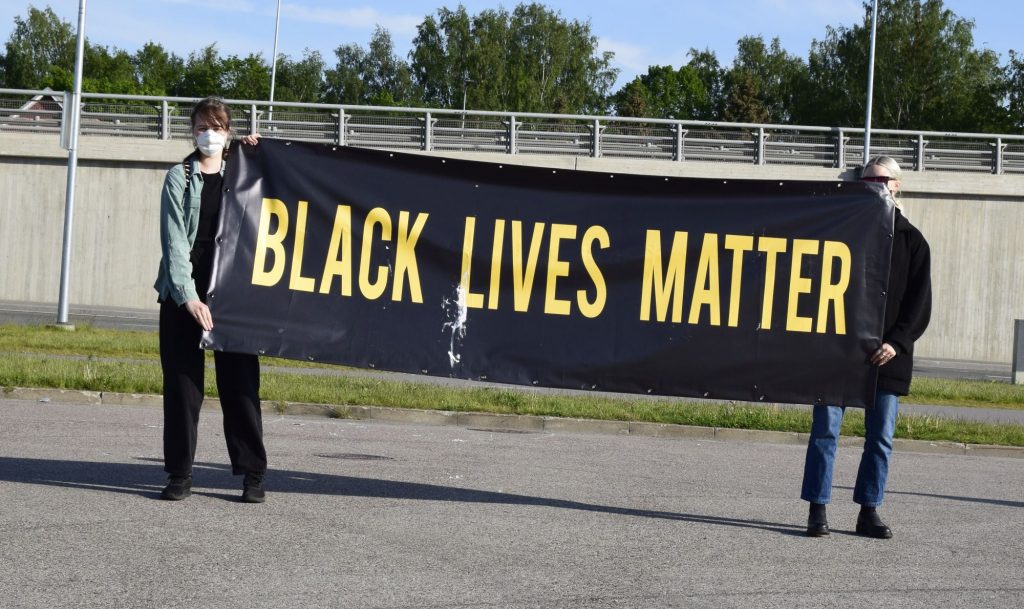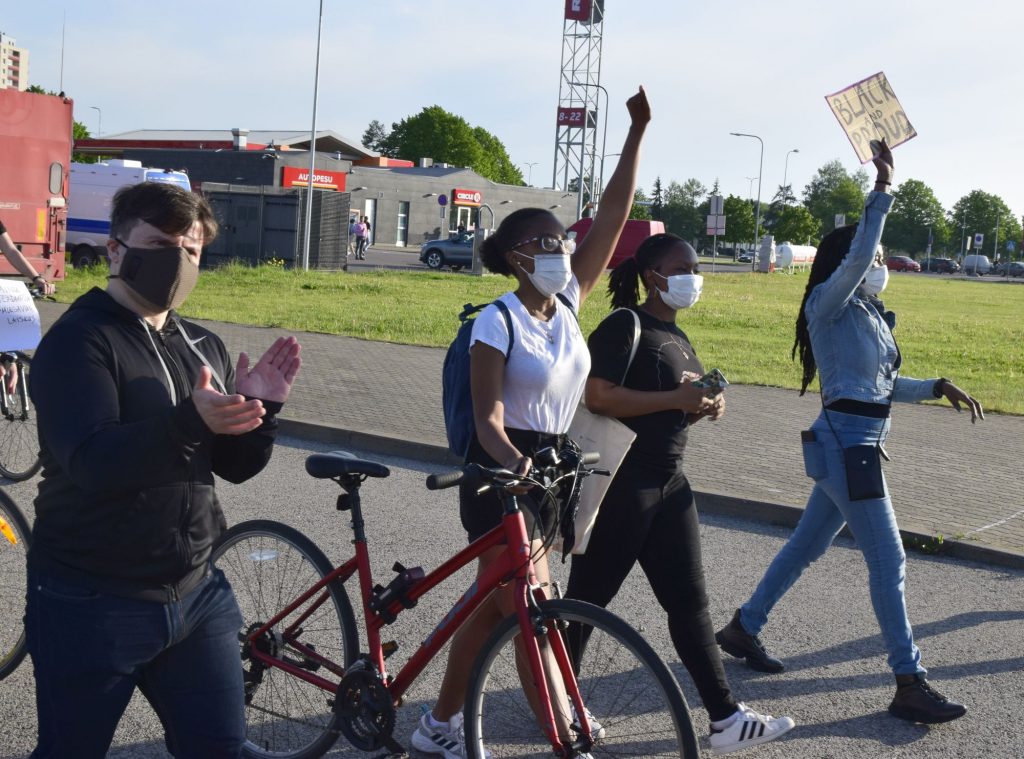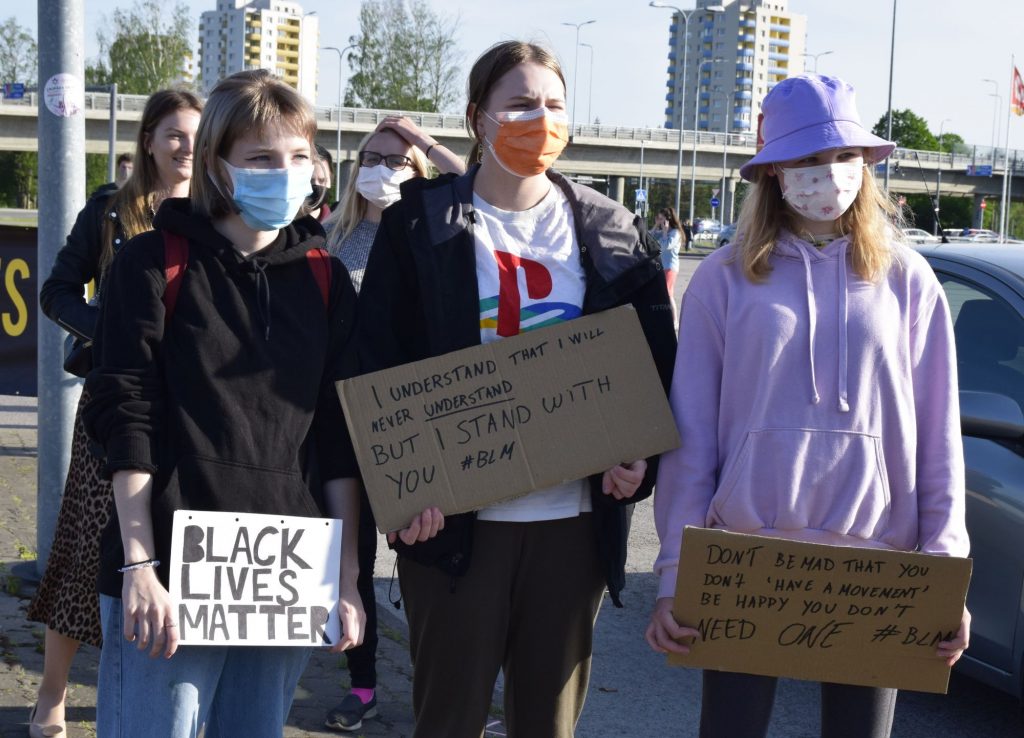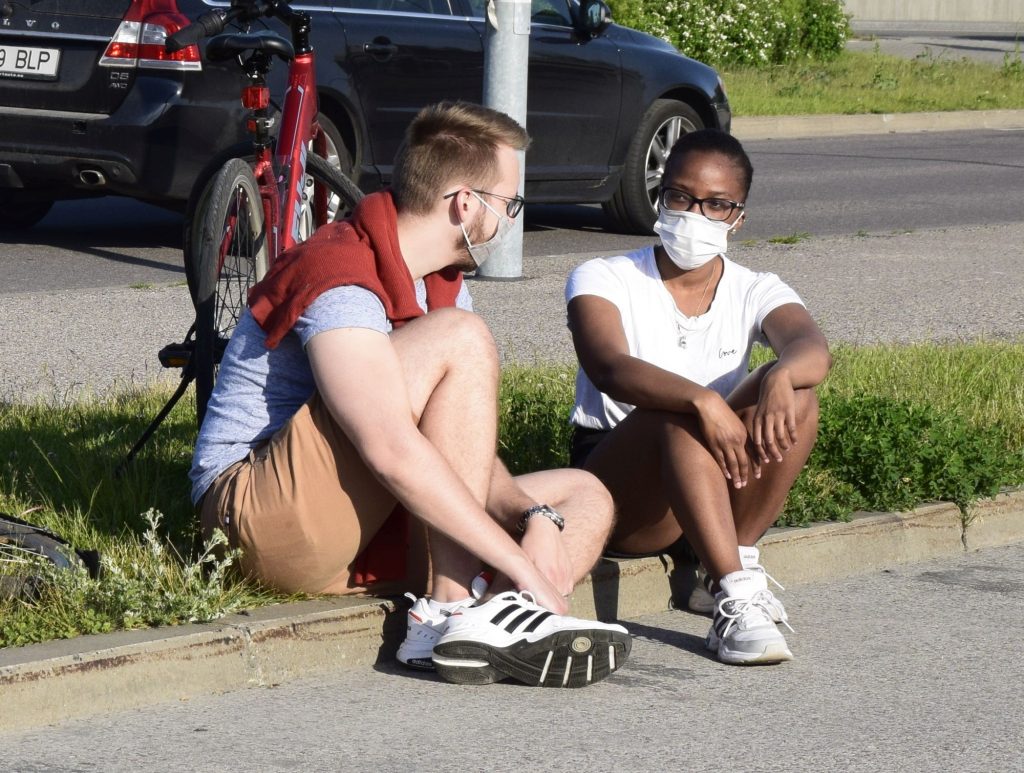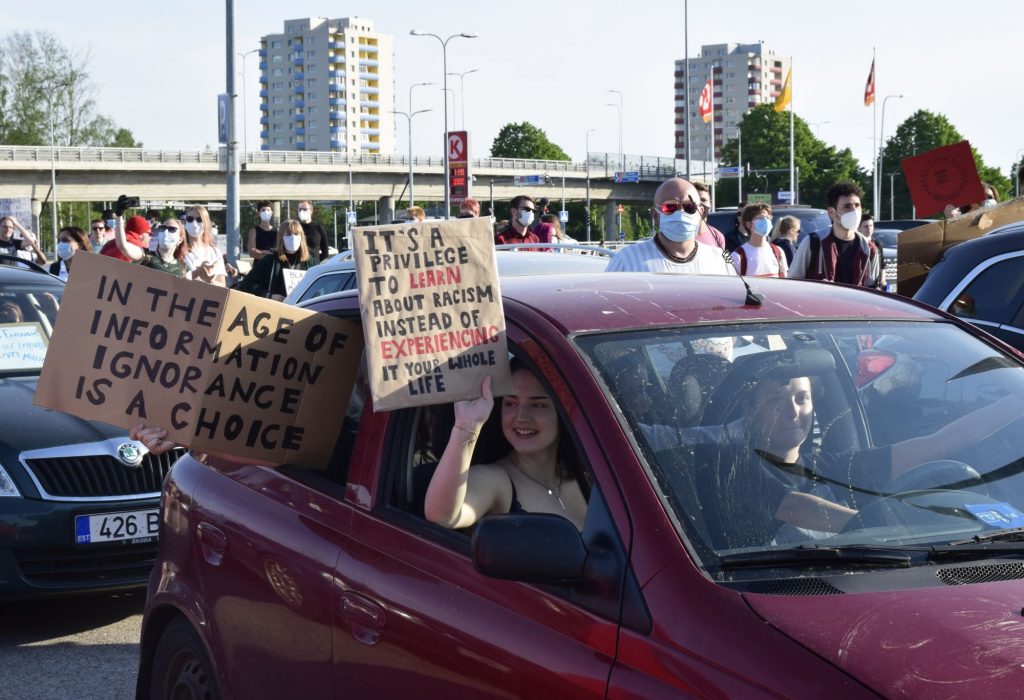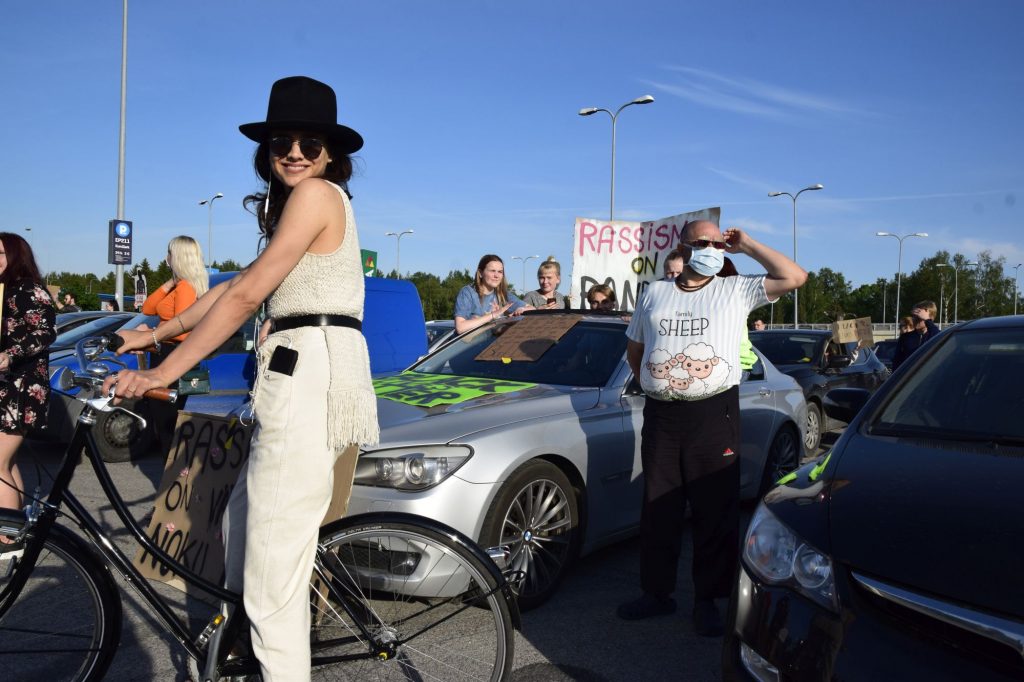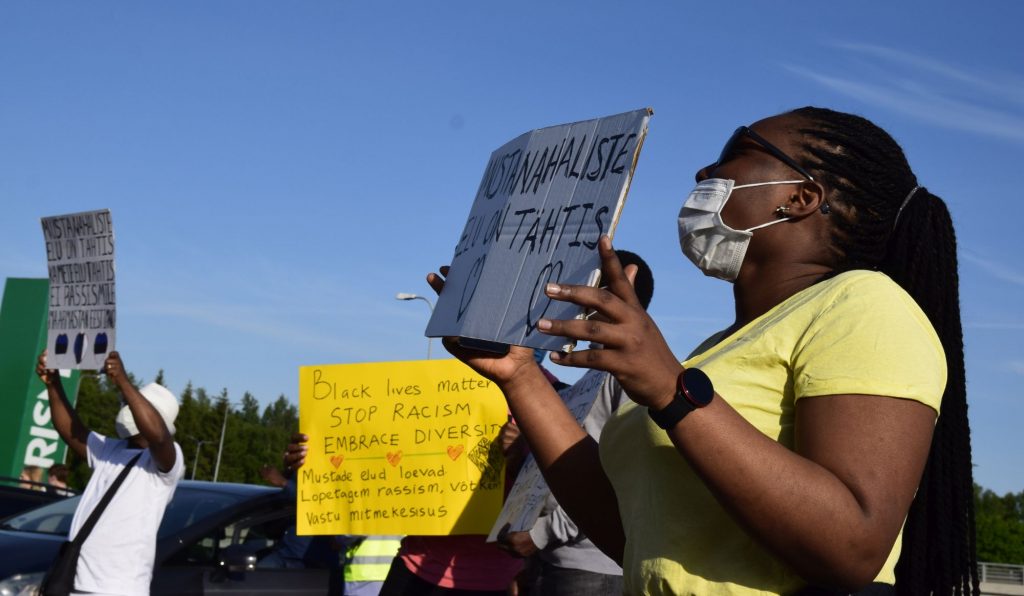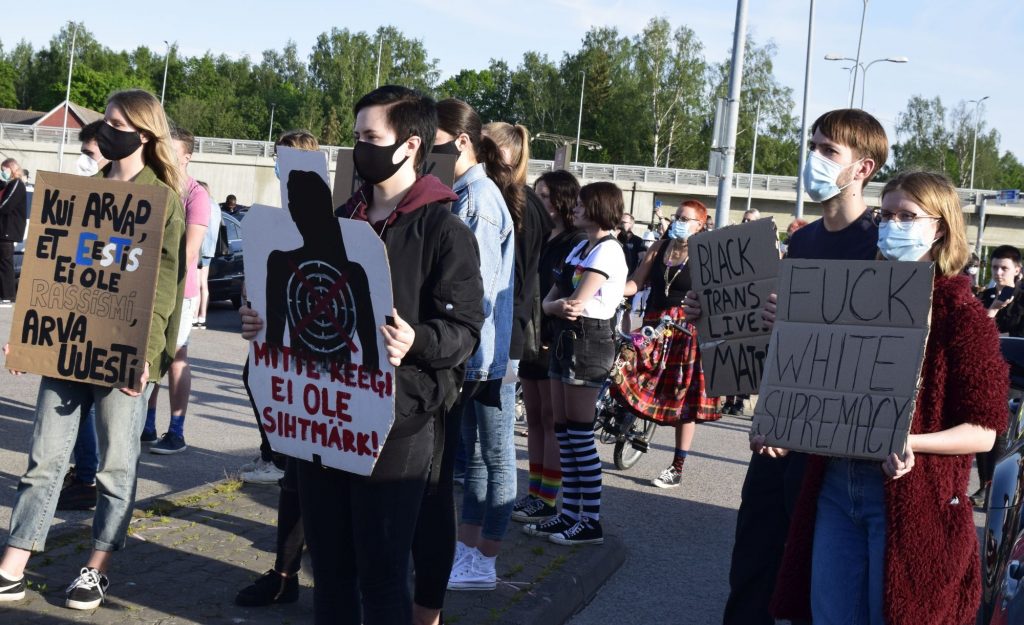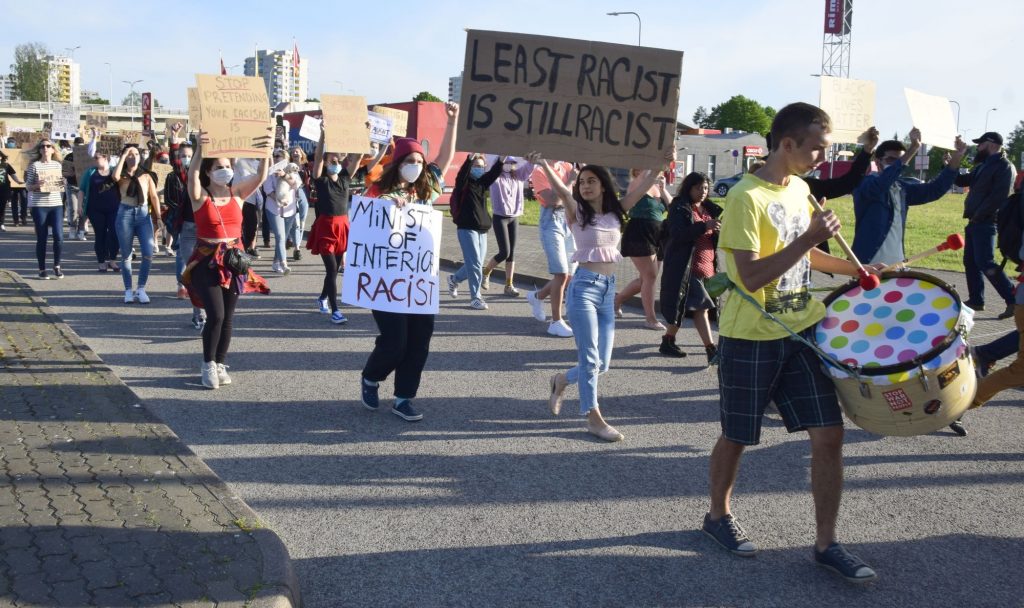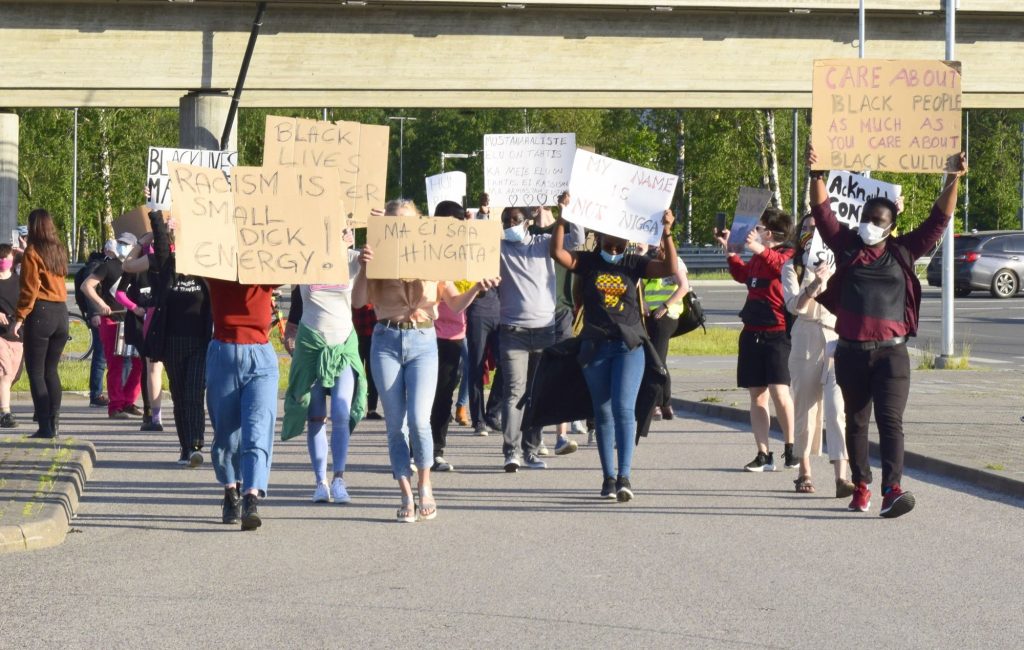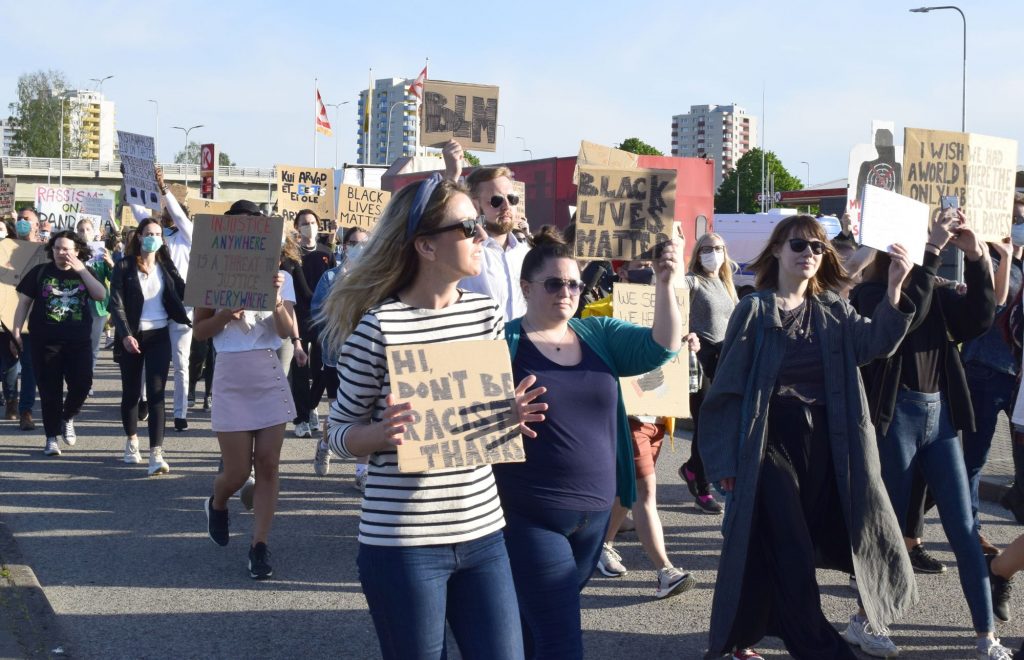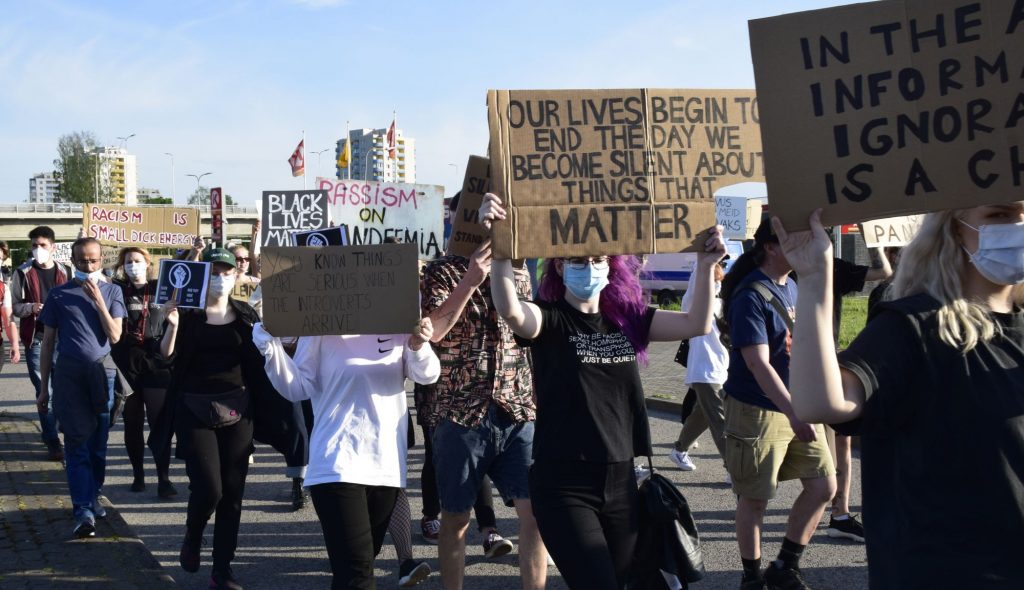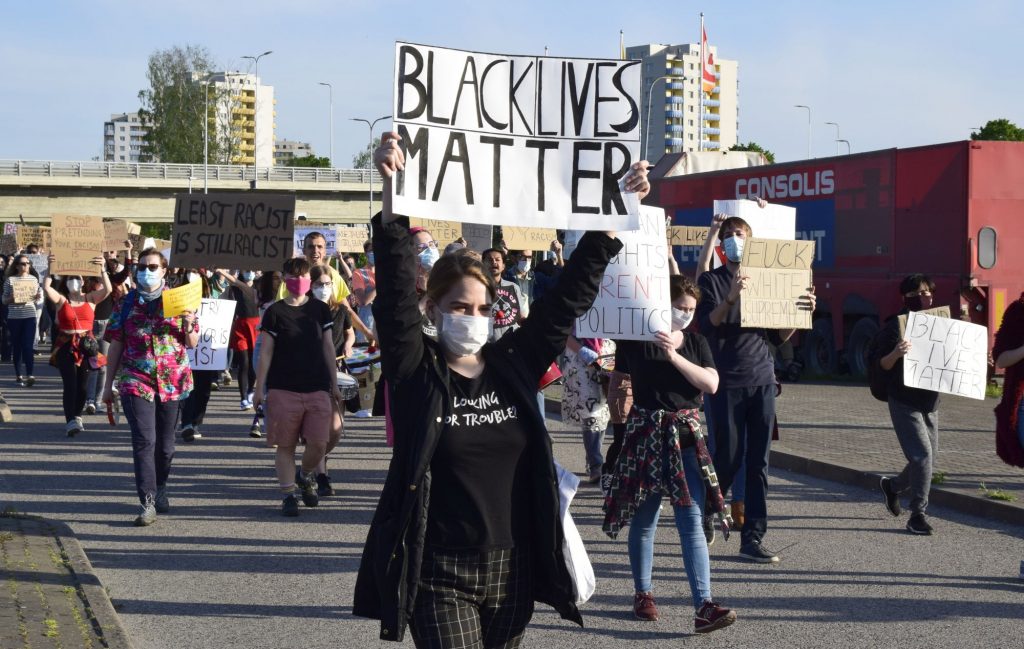Approximately 500 people turned out in the Estonian capital, Tallinn, for a peaceful solidarity rally, showing support to the Black community in the United States and taking a stand against racism in Estonia.
The Black Lives Matter rallies have taken place across the US and Europe since the end of May – triggered by the tragic death of George Floyd, an African American man brutally murdered by a white police officer in Minneapolis, MN – and it finally reached Tallinn on 10 June.
Due to the coronavirus-related restrictions, public events that involve over 100 people are still not allowed in Estonia and therefore, the protest was car-based.
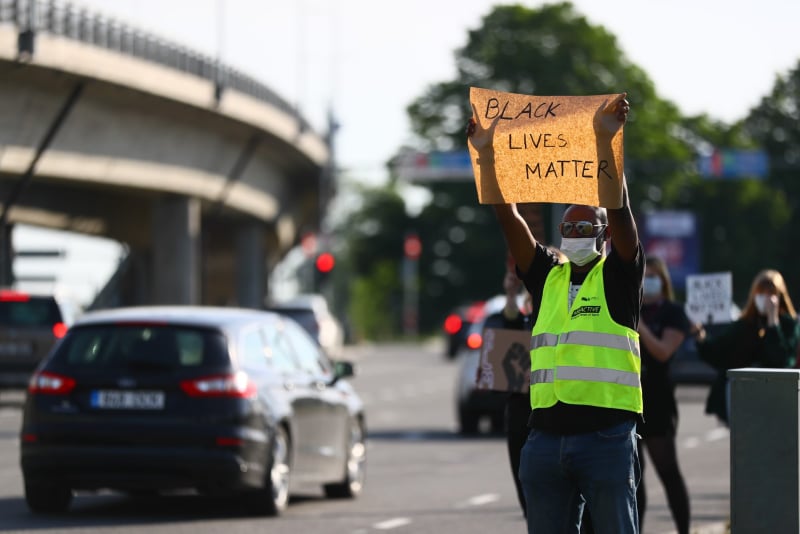
Last minute attempt to block the event
The rally, hosted by the Salliv Eesti/Tolerant Estonia citizen movement, was almost cancelled as the owner of the parking lot in front of the Saku arena in Tallinn’s Haabersti district wanted to pull the plug at the last minute. Previously, the event had been given the green light by the Saku arena; the operating company of the parking lot, Citypark; and the Estonian police. Two hours before the rally was due to start, Citypark informed the organisers that the owner of the parking lot had unexpectedly banned the event from taking place there.
Among the organisers, there was some speculation as to whether this was a political move, deliberately aiming to derail the rally. It was thanks to the support of the Estonian police authorities that the event finally went ahead – a decision made approximately an hour before it was due to start. The police argued that, legally, the operator of the parking lot – Citypark – had the contractual right to allow or ban the car-based peaceful rally to take place there.
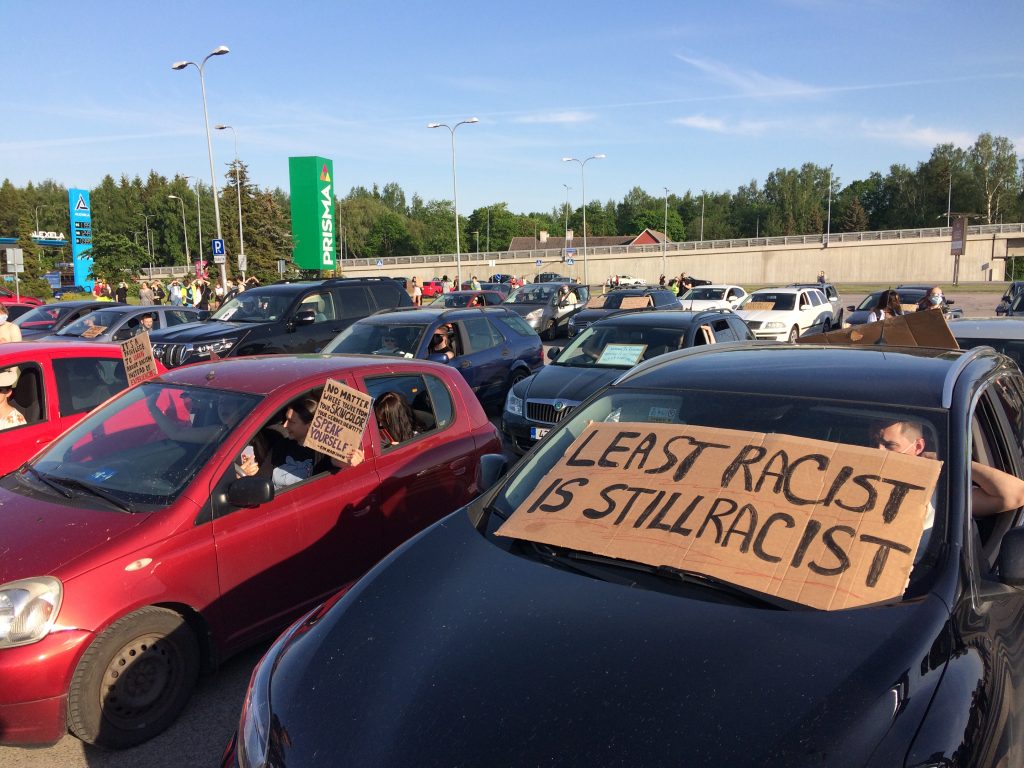
Peaceful and cheerful
The professionalism of the Estonian police was evident also on the spot – their scattered units and officers were subtly observing the event from the distance and leaving a clear impression that they were there to protect the rally, rather than intimidate it. Luckily, no troublemakers appeared – although a lone motorcyclist, with his loud bike painted in the Nazi German military colours, made his disapproval known by riding past the rally once, albeit from a safe distance.
Once the rally kicked in, the vibe was positive and cheerful – the beautiful summer day also helped. Most had come by car, as per invitation – some with witty, some with almost funny placards (“you know things are serious when the introverts arrive” or “racism has the energy of a small penis”, for example). However, there was also a marked space for people who had come by foot – who were supposed to be separated by 2+2 regulation (due to the coronavirus restrictions), although, in all honesty, many people were not keen to comply with the rule.
Photos by Britt Randma.
A group of drummers warmed the crowd up with their energetic drumbeats and car signals sounded in unison. Jene Walker, a dance instructor from the US, who made Estonia his home twelve years ago, cheered people up with his chants, “black lives matter!” and concluded with a short speech, in which he struck a concerned note.
“Twelve years ago, Estonia was more tolerant,” Walker said. He has since settled here, having an Estonian partner and a child – but has in the recent years experienced more verbal hostility on the streets, a claim publicly backed up by his wife.
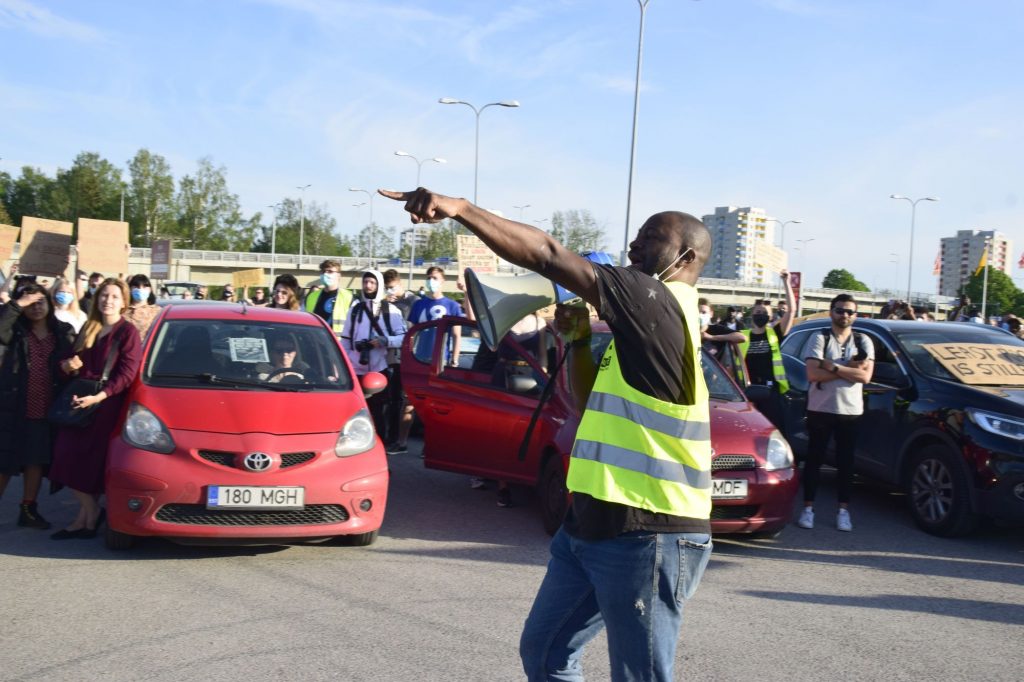
Walker also emphasised solidarity and thanked the rally’s participants for “watching our backs”. “We will watch your backs when the time comes,” he said.
Concerned expats
Many other expats with different cultural backgrounds also sound concerned and wonder whether the growing hostility and intolerance is fuelled by the increasingly arrogant far-right. The second largest party in the Estonian government, the populist Estonian Conservative People’s Party (EKRE) that among its MPs counts at least one neo-Nazi, is even using the coronavirus crisis for its own advantage, actively pushing its xenophobic agenda. “There is a lot of verbal racism,” many Estonia-based people with a different skin colour confirmed – some of whom are actually born and bred Estonians, ie born into mixed families.
Before the rally took place, the heated debates in the social media whether such an event was a necessity in Estonia were occasionally starting to look like virtual trench warfare. Yet, it happened – and happened peacefully.
Photos by Janek Jõgisaar/Bioneer.ee
“Together we aim to show there are many people in Estonia who care and who do not accept the showcasing of racial prejudice,” the organisers said before the rally. On 10 June, half a thousand turned up to show just that – a fairly big number in a country where people usually sneer at street protests. What is more – majority of the people at the rally were the young. And they are the future, after all.
Cover: “Black Lives Matter” rally in Tallinn on 10 June 2020. Photo by Janek Jõgisaar/Bioneer.ee

